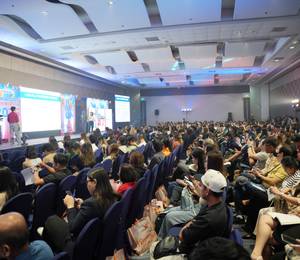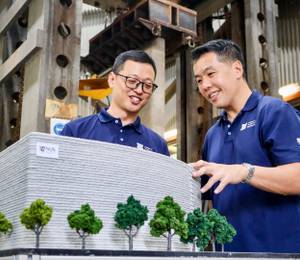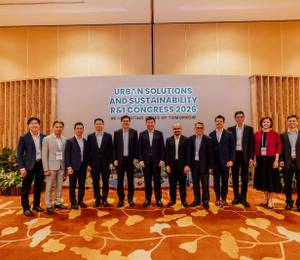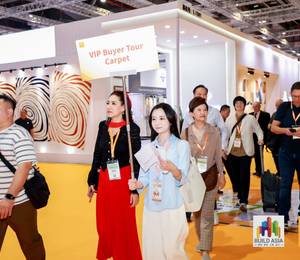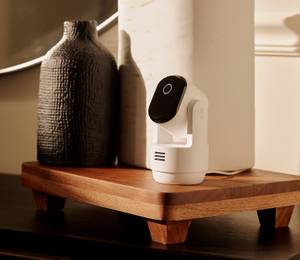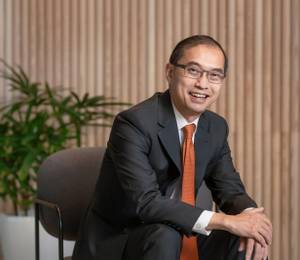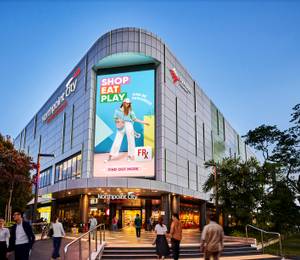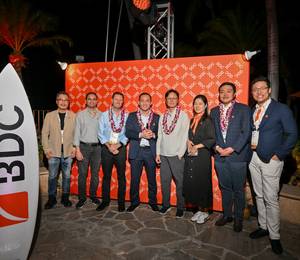Prague, Czech Republic – CHYBIK + KRISTOF (CHK) announced the completion of the newly designed Modular Research Centre with KOMA Modular, a Czech module manufacturer, located in Vizovice, Czech Republic. Latest in a series of collaborations, the recently completed 170 metres research centre acts as a think-tank – an innovative space to challenge and expand on existing notions of modular construction. Situated at the edge of the KOMA complex, the new research centre carefully integrates the factory into its surrounding environment while creating a large semi-public social gathering square contributing to the employees’ liveliness and progressive working culture. The one-storey building allows passers-by to view the factory from the street level, further enhancing an accessible, transparent, barrier-free area.
The partnership between CHK and KOMA began in 2014 by creating a master plan for the entrance and public area consisting of three modular buildings. The master plan demonstrates a strategic configuration design of the factory’s entrance, expanding on public space, in which each structure unveils modular versatility. Following the completion of the Modular Cafeteria in May 2014, CHK designed the Czech pavilion at EXPO 2015 in Milan, which was later converted into an office building for KOMA. The newly completed research centre (2022) presents the third and final modular design, rooted in the concept of rotated containers functioning as columns, enabling an architectural malleable space to further expand on the notions of modular architecture.
Set to become an innovation hub for the factory complex to develop and explore new undiscovered building methods with modules, the research centre forms an adaptable system that can meet multipurpose needs. Acting as an idea generator, the building is an important meeting place for all professionals to create innovative and special products, consequently becoming a default gathering point and evolution centre for the future of modularity. Keeping in mind the structure’s principal function, it is further underlying the vital element of transparency reflected in its building. Creating a complex that is open and welcoming to the local community confidently reflects on the principle of new concepts envisioned to form inside the rotated containers of the building.
Created as a prototype of a new and adaptable modular system, the research center underlines the studio’s dedication to expanding the limitations of modular architecture and engaging in supporting local communities.
